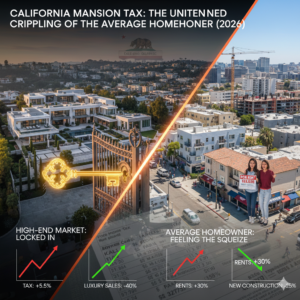 Once the housing market bounces off its’ bottom, is a phase out the mortgage interest deduction in the cards?
Once the housing market bounces off its’ bottom, is a phase out the mortgage interest deduction in the cards?
“There are no cows more sacred in the tax code than the deductions for mortgage interest and property taxes. Together, they add up to at least the $ 75 billion annual subsidy for housing and Homeowners. ” The New York Times.
Some 37.2 million taxpayers claimed the deduction in 2002, writing off $336.6 billion — or about $9,000 per taxpayer. It represented 37% or so of itemized deductions and generated slightly more in deductions than itemized deductions for deductible state and local taxes and twice as much in deductions as charitable donations.
In 2005 it was estimated that:
* The mortgage interest deduction will cost the Treasury $72.6 billion, according to congressional estimates.
* The $250,000 and $500,000 tax-free exclusions of home sale profits for single sellers and joint filers, respectively, will cost $23 billion .
* Property tax write-offs cost $20 billion, and tax subsidies for local and state housing bond programs account for $1 billion.
When a congressional committee examined the distribution of homeowner benefits for 2004, it found that people earning $200,000 and more a year – just one-half of 1% of all homeowners filing for deductions – pocketed 22% of the $70.2 billion in write-offs in 2004.
In 2007, Rep. John D. Dingell (D-Mich.) unveiled a draft of his “carbon tax” legislative reform package. Part of this draft legislation was a phase out the mortgage interest deduction on large homes. The phase-out schedule for the mortgage interest write-off, beginning with houses of 3,000 square feet, which would lose 15 percent of their deductions, and ending with houses of 4,200 square feet and larger, which would receive no deductions at all.
Dingel said: “In order to address the issues of climate change, we must address the issue of consumption-we do that by making consumption more expensive.”
Naturally, with the real estate market bust, the Dingell package was shelved. Once the housing market recovers, lets’ say two years from now, it’s a very good bet the administration will be looking hard at ways to increase taxes to pay down the huge bailouts. The unusual financial troubles and the move to green, will be the perfect time to push through such legislation. Unlike the Dingel proposal ,which was aimed at larger homes, the future legislation will most probably cover all mortgage interest deductions. To increase its’ chance at passage, it is a good bet it will be a phased in plan with deductions decreasing over a number of years.
Right now, President Barack Obama’s proposed budget calls for a cap on the mortgage tax deduction for couples earning $208,850 or more. Households at the 33% and 35% tax rates can currently claim deductions at those rates — Obama would reduce their deduction to only 28% of the value of those payments. One should keep in mind that this is just the first step to what I see as total elimination of mortgage tax deduction. If this passes now, it is likely that in Obama’s second term the earning cap for the mortgage tax deduction will be reduced as the first step to zero or a very low amount, so as to be just a benefit for the low income earners.






Homes will always be unaffordable to the average person in high priced CA as long as government subsidize home owners in the form of mortgage tax deductions, and Fannie Mae bailouts. Remove the interest tax deduction and watch the prices correct 50%. This place a bottom on home prices and increase home ownership than further government meddling. The issue is affordability, not unemployment. Prices are still too high due to government tax policies and bad lending practices.
Riverside attorneys
And this is just the tip of the iceberg. When the dust finally settles, both housing prices and mortgage rates will be subsidized by the taxpayer. This, amigos, is just the next step on the glorious road to socialism. It truly does take a village.
San Diego breast lift
Well with the way government is spending, that’s not the only tax deduction that is going to end… The governments giant credit card will need to be repayed some day…
Everyone’s scrambling. Well not buyers, but sellers for sure. And that means buyers get the easiest ride of their life. Find a foreclosed home, or a short sale and you won’t get the short end of the stick at all.